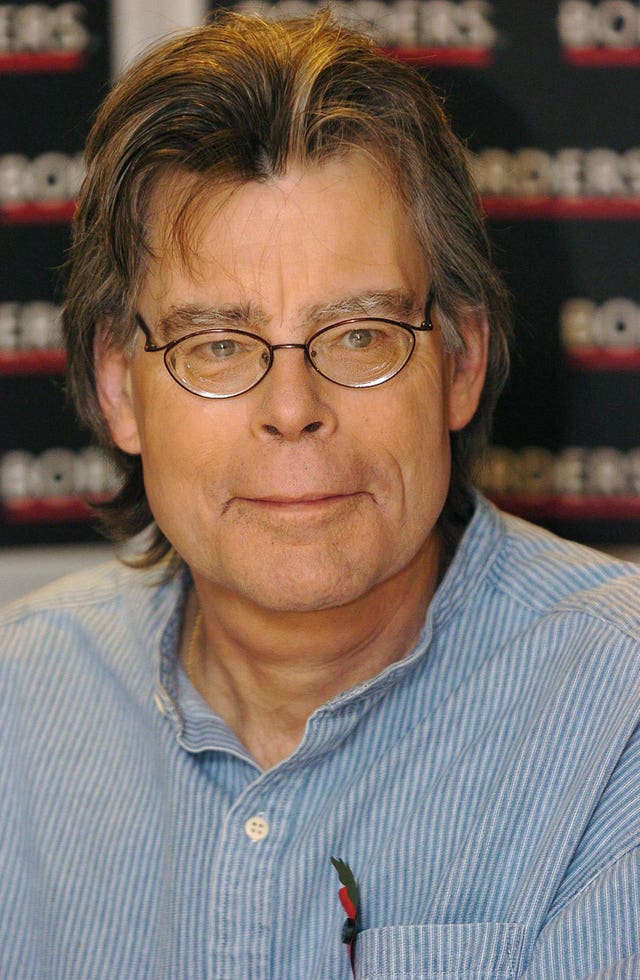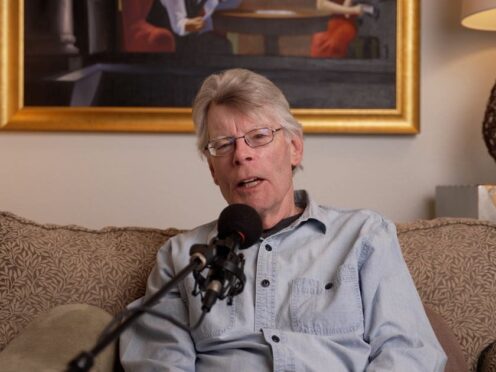Stephen King has said being sober for more than 30 years has allowed him to live a “more spiritual” and “more moral” life.
The American author, often described as the King of Horror, struggled with alcoholism and drug abuse during the 1970s before friends and family staged an intervention.
King, who has published more than 60 novels including The Shining, It and Pet Sematary, sought help and has remained sober since.

Speaking to the Archbishop of Canterbury Justin Welby as part of BBC Radio 4’s The Archbishop Interviews series, he addressed the impact of his faith.
King, 74, said: “Well, I don’t talk a lot about my experiences with drugs and alcohol because I’m part of a programme that’s supposed to maintain anonymity at the level of press, radio and films, but I’ve been sober for 33 years, and it has become part of my life.
“And it certainly allowed me to live a more spiritual life in many ways. It makes it easier to live a moral life. Because when you do something that’s rather shitty, you know that you’ve done it, and you have to talk about it a little bit.
“Because the last thing that I want to do is to get drunk or to get stoned. And so part of my prayer is, please forgive me for what I did, because I don’t want to drink or drug anymore. And it works.”
King said sobriety and his experiences as an addict had influenced his relationships with his children and grandchildren.
He said: “They know and they know what works for me. And as far as what works for them. They have their own spiritual inner lives, and they know what my life is.
“And my boys, they’re both very successful writers in their own ways. My daughter is a minister in the Universalist Church, and she’s a very spiritual person, and a beautiful, beautiful person. Well, they all are.

“I was promised that if I sobered up, I wouldn’t regret the past or fear of the future. And I don’t really fear the future. But there are many parts of my past I’m sorry that I regret.
“There are things that I would do differently if I had a chance to go back. And one of the things that I’m grateful for is that my grandchildren never saw me at my worst.”
In 1999, King was hit by a van while out for a walk in his native Maine, leaving him with chronic pain even after a series of operations.
Reflecting on the impact the crash had on him, he said: “If you keep a chip on your shoulder, it’s going to give you a bad posture.
“There’s no sense holding a grudge. There’s no sense being angry at people. Did I forgive Bryan Smith for hitting me? No. Did I hate him, did I want to get him, was I angry at him? No.
“It was just basically that there was no great wheels of fate turning, he was just a bad driver. He lost control of his vehicle because a couple of dogs were fighting in the backseat over a cooler that had meat in it.”
The Archbishop Interviews airs at 1.30pm on Sunday on Radio 4 and BBC Sounds.
